Pupil Premium Plus
Pupil Premium Plus
Pupil Premium Plus (PPP) is a sum of money allocated to local authorities to be used for the benefit of the educational needs of their Looked After Children as described in their Personal Education Plan (PEP).
The amount of £2,570 is confirmed for financial year 2024/2025 but is subject to review and change. The DfE guidance on PPP can be viewed here.
The amount of PPP each local authority receives is based on an allocation of £2,530 per child for the number of statutory school age Looked After Children for at least one day, as recorded in specific data returns.
PPP is managed by the Virtual School Head (VSH). This is based on the premise that the VSH is best placed to know how to use the funding to maximise educational outcomes for Looked After Children in their local authority.
PPP is awarded to Looked After Children who are of Statutory School Age. For those children who are younger than this in the Early Years, Pupil Premium is awarded directly to the education setting. This can be up to £388.
The Virtual School Head's responsibilities
In deciding on the use of PPP, the Virtual School Head will take into account the following:
- Use of the PPP is intended to contribute towards meeting the needs identified and recorded in the child's PEP
- There is no requirement for the Virtual School Head to give the PPP funding to schools. They may decide to do so in part or not at all depending on the needs of the child and school's ability to demonstrate appropriate use and impact of the funding
- Where the funding is being passed on to schools, this may be done in one payment or in instalments.
- The funding should be used according to the child's needs; some children will be allocated more or less than others as their needs vary. It is important to remember that although the funding is allocated on a 'per head' basis, this is not an entitlement
- Allocation of PPP should be linked to the content of the child's PEP, and in particular the PEP targets
- PPP may be pooled to provide activities to benefit the local authority's Looked After Children more holistically
- In agreement with the VS, schools who have more than one Looked After Child may choose to pool the funds they receive to provide extra support, such as employing a teaching assistant
- There is no requirement to pass on PPP funding to non-maintained schools
- VSHs will need to be able to demonstrate how their PPP funding is linked to raising achievement for Looked After Children by their authority
- VSHs will need to keep an account of all PPP spending so they can report as required on its use and effectiveness. The VSH is required to report annually on the use of PPP at the very least.
While PPP cannot be used to fund posts that are the responsibility of the local authority as corporate parent, it may be used to support 'the work of a person where it can be very clearly demonstrated that their role has a significant contribution to promoting the educational achievement of Looked After Children by the authority. PPP is also paid in respect of children who have ceased to be looked after by reason of adoption, special guardianship, residence or child arrangements order so long as they were looked after for one day in the preceding financial year.
Hillingdon Virtual School's approach to PPP
HVS will allocate PPP to schools on a monthly basis. Where possible, this will be the month following the child's PEP meeting, but this is dependent on when in the month the meeting is held. For example, if a PEP is held in early October, monies will be released in November. If the meeting was held from the mid-point of October, monies will be released in December. The VSO will be able to confirm the date of release of funds at the PEP meeting.
Schools can request up to £2000 per academic year.
The VSH will allocate based on the targets set at the PEP meeting.
To read about our approach to PPP in more detail, please request a copy of our handbook from virtualschooladmin@hillingdon.gov.uk.
Working with Schools
The Virtual School Head has had control over the Pupil Premium Plus Grant since April 2014. DfE Guidance states that: " it is the responsibility of the Virtual School Head in the local authority that looks after the child, in consultation with the child's educational setting, to ensure that PPG is used to support those children's educational needs in accordance with their personal education plans."
The Virtual School Head has the discretion not to authorise payment if the above condition is not met, however we expect to be able to work together to build on good practices already established in Hillingdon schools. Staff in the Virtual School are able to provide advice and guidance on how the Pupil Premium Plus can be spent and also monitor its usage via the PEP and PPP termly evaluation.
All schools and settings are advised to have a Pupil Premium Plus policy approved by their Governing Body. This should include the role of school staff in ensuring the most effective spend of the funding, the monitoring of the expenditure and the process for evaluating the impact on progress. The Governing Body should be fully aware regarding the publication of information about Pupil Premium Plus on the school's website. Since September 2012, schools have been required to publish information online about how they have used Pupil Premium Plus to improve the attainment and outcomes of Looked After Children. It would also be good practice to include this information in the Designated Teachers Annual Report to the Governing Body.
PPP for LAC should not pay for things which are expected and included within foster carers allowances or provided through the corporate parent pledge, eg. standard school trips, regular out of school activities and access to a laptop.
OfSTED & Pupil Premium Plus
OfSTED now has a sharper focus on the performance and progress of Pupil Premium Plus pupils in their inspections. It is unlikely that a school will be judged 'outstanding' if its disadvantaged pupils are not making good progress. Schools judged not to be using their Pupil Premium Plus effectively will be expected to commission an external Pupil Premium Plus review, led by a system leader, to improve provision for their disadvantaged pupils.
Inspectors may ask the following questions during an inspection:
- Is the school making effective and efficient use of the pupil premium for its Looked After Children?
- Does the PEP identify the needs of the child/young person and show the interventions and support the school will provide to secure accelerated progress?
- Are the targets in the PEP sufficiently challenging and do they reflect high expectations?
- Is impact evaluated?
Inspectors may expect the following:
- A list of all Looked After Children on the school roll with an indication of the PPP spend for each.
- To be able to triangulate this by examining a random sample of personal education plans to determine if the assertion in the list can be evidenced at the level of the individual pupil?
- Data on the destination of the secondary looked after cohort post-16 as evidence of the degree to which the PPP spend has supported progression





